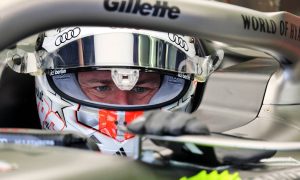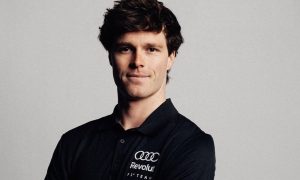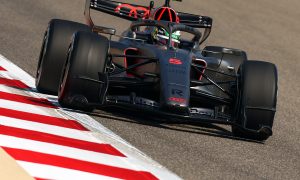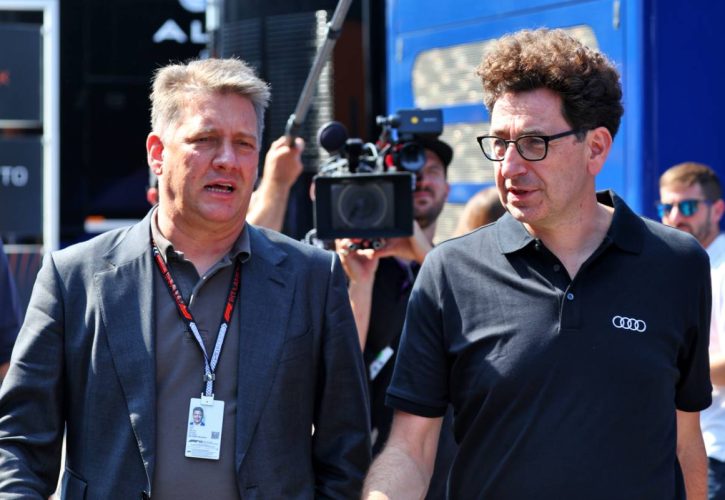
Audi CEO Gernot Dollner has reaffirmed the manufacturer’s “long-term commitment” to its Formula 1 program, despite Renault's decision to withdraw from the sport as an engine supplier ahead of the 2026 season.
Renault, which powers the Alpine F1 team, recently confirmed that it will stop developing its own power unit for F1’s new 2026 engine regulations and transition to being a customer team.
The move has raised concerns among some about the challenges of developing a competitive Formula 1 engine from scratch—something Audi is currently undertaking.
However, Dollner confirmed that Renault’s departure has had no influence on Audi’s plans.
“No, that was not part of the discussion,” he said when asked whether the French company’s exit had prompted any internal discussions at Audi.
Audi, which is set to fully take over Sauber in 2025, has been preparing for its entry into the sport for several years.
The Ingolstadt firm’s decision to enter F1 as a full manufacturer – building both its own chassis and power unit – marks a bold step, and Dollner emphasized that their commitment is solid.
“Audi has a long-term commitment to Formula 1,” said the company’s chief executive officer, quoted by Motorsport Week.
“Earlier this year, the supervisory boards of AG and Audi took the decision to completely get control of the Sauber shares.
“And so we will be as of 1st January 2025 100 per cent in charge of Sauber.”
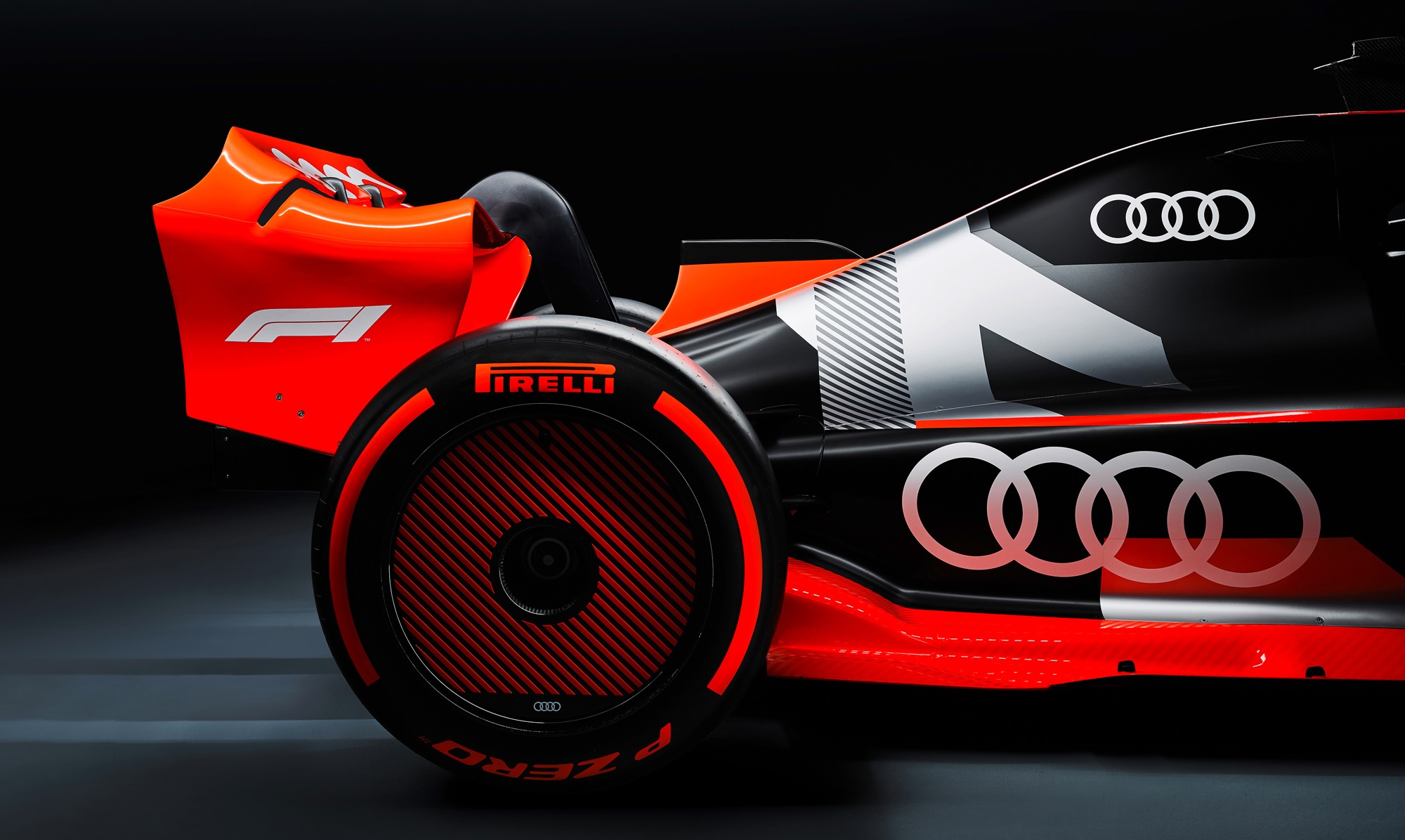
©Audi
Dollner, who also serves as chairman of Sauber’s board of directors, said his personal involvement in the project would increase as Audi continues its preparations for the 2026 rules reset.
“In 2025 that will happen, and myself being now chairman of Sauber, of the board of directors of Sauber Motorsport, means that I also will personally involve myself into our Formula 1 project more intensively,” he added.
Audi’s confidence in its Formula 1 entry has been further bolstered by strategic hires, including former Ferrari team principal Mattia Binotto as Sauber’s new chief operating officer, and Jonathan Wheatley, a key figure at Red Bull, who will lead the team’s track operations.
“We started at the end of July to realign our management structure with clear responsibilities,” Dollner explained.
“I’m really happy that we found a strong, strong management for our Formula 1 project, with Mattia Binotto and Jonathan Wheatley.
“With a strong dual leadership team, one taking care of the operations on corporate with a project with a car.
“And the other one handling our operations on the racetrack and being the spokesperson, we believe that we found a perfect solution for our future operations.”
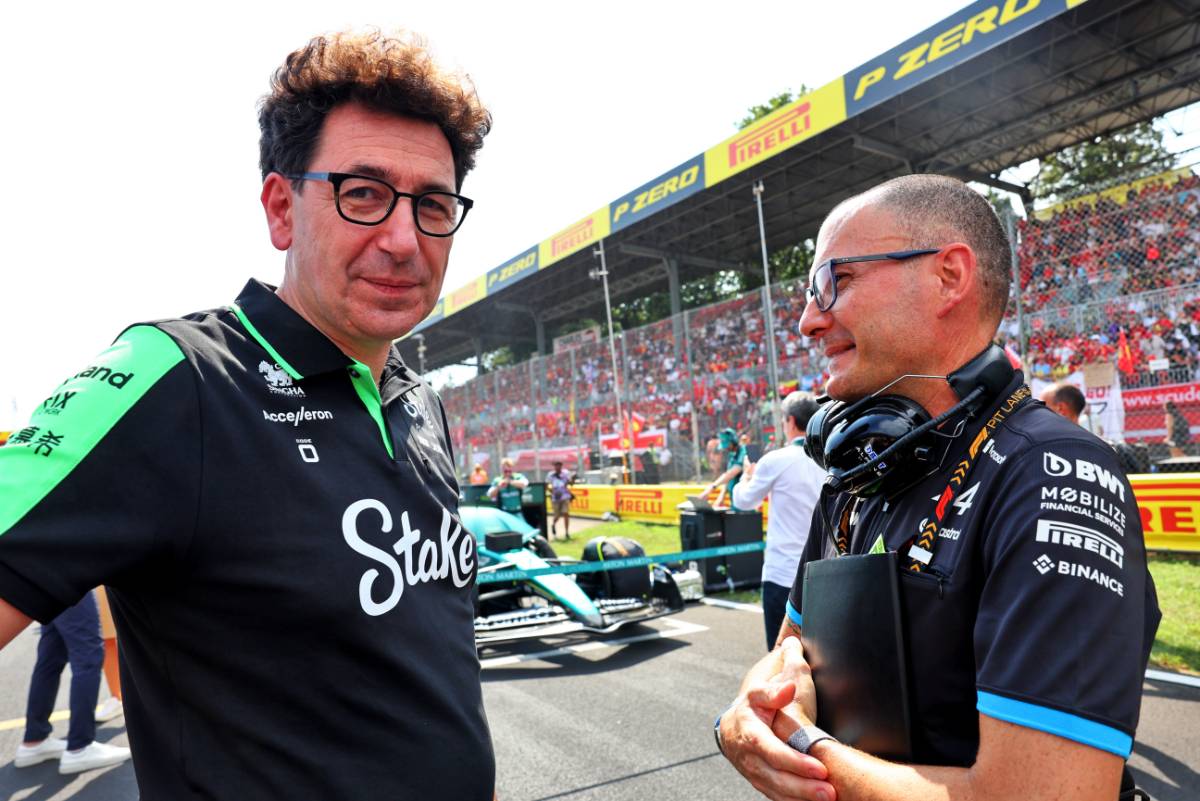
Sauber COO Mattia Binotto on the grid at Monza with Alpine technical director David Sanchez.
Binotto, who joined Audi after years of experience at Ferrari, acknowledged that the established power unit manufacturers like Mercedes and Red Bull will have an advantage in the early stages.
However, he stressed that it was essential for Audi to develop its own engine if they want to compete at the highest level.
“It’s a huge task, but I think for Audi, it’s one of the most important ones, because being branded by our own power unit, that’s a key element of the project,” he stated.
“It’s a key element of our objectives, being not only a chassis winning a championship in Formula 1, but being a full manufacturer, chassis and power unit manufacturer.
“But we know that the task is huge. It’s a big investment.
“But, I think we’ve got the good people. I think there is all we need to do well and the full support. It will be down to us to earn the trust of the leaders.”
With its comprehensive approach, Audi is positioning itself as a future force in Formula 1.
While Renault’s departure may shift the competitive landscape, Audi remains fully committed to developing its own power unit and building a competitive team for the 2026 season and beyond.
The German automaker is betting big on Formula 1’s future, and it appears determined to make its mark as a dominant player in the sport.
Keep up to date with all the F1 news via Facebook and Twitter




